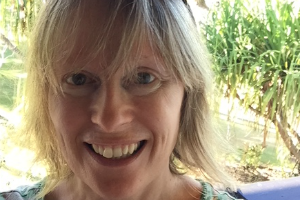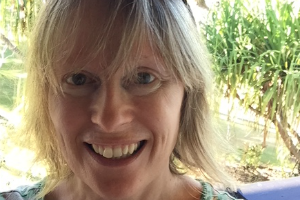Adjusting to widowhood – and GP life back in the UK


It is nearly two years since my family and I touched down in Auckland, New Zealand, ready to embrace our new life as immigrants there.
We had been tempted to leave behind our life in Britain by the promise of beachside living, a better climate, and a more relaxed work environment. My late husband, Richard, had secured a job as a consultant anaesthetist and intensivist at Whangarei hospital, and I had a job to go to in a thriving general practice in the same city, as well as the hope of picking up some hospice work in due course.
What we did not foresee was the complaint made to the GMC about Richard that would throw a grenade into our life when we opened the letter that every doctor dreads on Christmas Day 2015, just as we had packed the last of our belongings into a container bound for New Zealand, sold our house, and notified our children’s school that they would be leaving shortly.
A massive shadow was immediately cast over our lives. Despite the complaint being relatively minor, and despite it being thrown out in due course – as everyone around Richard fully expected it to be – its timing was devastating. It caused us stress for months on end, as we crammed ourselves into holiday accommodation, arranged for our jobs to be returned to us, put our children back into their school. As time dragged on, we decided to forge ahead with our emigration plans, and finally departed on my work visa, with Richard forced to have two months off while his paperwork was processed.
I did not foresee this could happen to our close-knit, happy family
While this sounds great, in many ways – eight weeks of enforced holiday, on Northland’s pristine beaches – the toll it took on Richard was huge. After five months of anxiety, he was now thrust into his new life Down Under with no structure to his day, or colleagues to banter with, or patients to take care of, and with an abundance of time on his hands in which to ruminate.
Eventually, life got easier; Rich started work, we moved into a fabulous rental with landlords who embraced our pets and we met friends who will be in my life forever, such was the warmth with which they welcomed us. We lived on a peninsula with a beach moments away, looking out towards Mount Manaia, with an island which we could walk to at low tide, and a grassy area by the water where we kept kayaks; my husband acquired a fishing boat and friends to teach him how to use it.
But by now Richard had developed the symptoms of depression. He had been ill with it once before, over 20 years earlier. With treatment, his depression lifted, and, for a time, life was great, by the beach. And then his illness returned.
I won’t dwell on the details here, but the long and short of it is, he died. He was ill, the drugs didn’t work this time, he was an anaesthetist with easy access to lethal drugs and he had an impulsive streak.
If I look at his death as a significant event of the sort that we reflect on in clinical practice, then I see how multi-factorial it was: GMC complaint, plus a move across the globe, a new job, the loss of family and close friends, insomnia from a more frequent on-call rota and heightened work-related anxiety as a sequela of the complaint, to name a few.
Added to this I see myself as one of the factors – I did not accurately assess his suicide risk as high. I failed to imagine this particular outcome. I did not foresee that this could happen to our family, our close-knit, happy family, our little unit of four.
And so, we are now a unit of three. We left Richie behind in New Zealand, or at least some of him – his ashes are scattered on three of his beloved Northland beaches.
I have returned to work here in the UK, at the hospice where I worked for five years before we left, and as a GP locum; my kids are back at their old schools.
I have had to remember how to operate EMISweb, Lexacom, Docman; I have had to say farewell to electronic referrals, easy email access to consultants for advice, and, most tragic of all, the little torches that fit inside speculum handles over there. (It was with a sinking heart that I adjusted my first wall-mounted desk lamp at the foot of the examination couch back in this country.)
I have a host of worries constantly accompanying me at all times. My children. My finances. Surviving general practice back in this country in the longer term. My new status as single parent and sole income generator. The loneliness of making every single decision, big or small (and they have mostly been big) by myself.
There was a suicide clause in our New Zealand life insurance policy, newly taken out. I have no choice but to roll up my sleeves and, in Rich’s phrase, ‘crack on’.
Time will tell whether I can do this; I will be honest in this blog, and keep you all posted. I am sick and tired of widowhood already, five months in, but every day I wake up and Richard is still dead, incomprehensibly; the only option is to get out of bed, and get on with life.
Dr Kate Harding is a locum GP and hospice doctor in Herefordshire
Portfolio careers
What is the right portfolio career for you?

Visit Pulse Reference for details on 140 symptoms, including easily searchable symptoms and categories, offering you a free platform to check symptoms and receive potential diagnoses during consultations.












